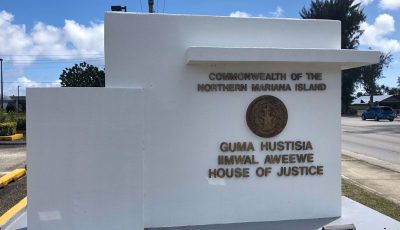High court: Legislative pay raises are unlawful
On Aug. 30, 2018, the CNMI Supreme Court issued its opinion in Manibusan v. Larson, answering two certified questions submitted for review by Attorney General Edward Manibusan and Finance Secretary Larissa Larson.
The parties submitted the petition for certified question after the Superior Court entered a preliminary injunction, preventing the salary increases enacted by Public Law 19-83 from being implemented pending a ruling on the law’s constitutionality.
The first question asked the high court to review whether the presence of four sitting members of the Legislature on the advisory commission on compensation violated Article II, Section 11 of the NMI Constitution.
Section 11 prohibits legislators from serving in any other Commonwealth government position and includes a ban on legislators’ service on independent commissions. The majority found that the advisory commission is not an independent commission, citing support in the Constitution’s text, analysis of the Constitution of the Commonwealth of the Northern Mariana Islands, and other historical documents. Because the advisory commission is not an independent commission, the high court found Section 11 does not restrict legislators from serving on it. The dissent found differently, holding that effectuating the spirit of the Constitution and goals of its framers necessitates the advisory commission’s independence.
The second question requested the high court to review whether the salary increases instituted pursuant to Public Laws 4-32, 7-31, and 19-83 were unconstitutional due to the increases either exceeding the change in an accepted price index, not using a composite price index, or exceeding the advisory commission’s recommendation. The question required the court to analyze the procedure for enacting salary increases for executive, legislative, and judicial officers. The high court reviewed Section 10, determining it contained five requirements that must be followed when enacting legislative salary increases. In particular, the Supreme Court found the Constitution restricted the Legislature from enacting a salary increase greater than the maximum amount recommended by the commission. Additionally, the high court determined Section 10 necessitated that the advisory commission 1) choose a CPI; 2) review the percentage change of that CPI for the period since the last salary change; and 3) make a salary recommendation that falls within the percentage change. As a result of the high court’s answer, it found that the salary increases in Public Laws 4-32, 7-31, and 19-83 violated Section 10 of the Constitution. (PR)



























